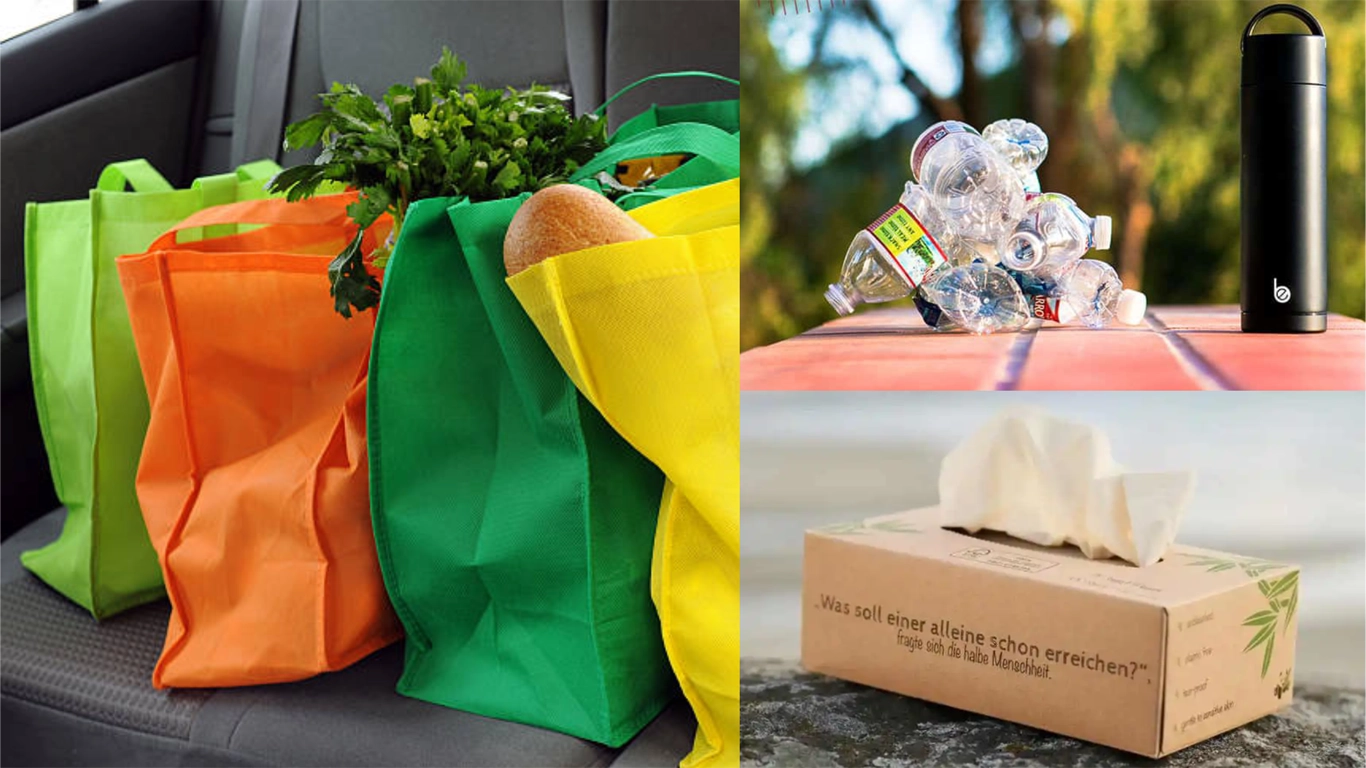
12 Sustainable Habits for Your Daily Life

03 May 2025
12 Sustainable Habits for Your Daily Life
Sustainable living begins with basic, practical changes to your everyday routine. You may dramatically cut waste and conserve resources by replacing daily things with eco-friendly alternatives, such as bamboo toothbrushes and solar-powered chargers, without completely changing your lifestyle. These modest, deliberate decisions build up, causing a ripple effect that helps both the environment and future generations.

Switch to Bamboo or Recycled Toilet Paper and Tissues: These options use more sustainable resources compared to traditional paper made from virgin trees.
Carry Reusable Shopping Bags: Keep a set of sturdy, reusable bags in your car, backpack, or purse so you're always prepared for grocery shopping or spontaneous purchases.
Use Reusable Water Bottles and Coffee Cups: Invest in a durable water bottle and a travel mug and make it a habit to take them with you to avoid single-use plastic bottles and paper cups.
Pack Your Own Lunch and Snacks in Reusable Containers: This reduces the need for disposable packaging like plastic wrap, bags, and takeout containers.
Say No to Plastic Straws and Opt for Reusable Alternatives: Carry a bamboo, metal, or silicone straw if you enjoy using one, or simply sip directly from your glass.

Bring Your Own Cutlery: Keep a small set of reusable cutlery in your bag for when you're eating on the go to avoid single-use plastic utensils.
Choose Bar Soaps and Shampoo Bars Over Bottled Liquids: These often come with less packaging and can last longer.
Use Cloth Napkins Instead of Paper Napkins: Cloth napkins are washable and reusable, reducing paper waste.
Repair Instead of Replacing: Before buying a new item, see if the old one can be fixed. This applies to clothes, electronics, and household items.

Compost Your Food Scraps: Set up a simple composting system for fruit and vegetable peels, coffee grounds, and other organic waste to reduce landfill waste and create valuable soil enrichment.
Unplug Electronics When Not in Use: Many electronics continue to draw power even when turned off. Unplug chargers, TVs, and other devices when you're not actively using them.
Choose Email Over Print: When possible, opt for digital communication to reduce paper consumption and the associated environmental impact of printing.
Transitioning to sustainable habits doesn’t require perfection—it’s about progress. Each bamboo tissue you use, every reusable bag you carry, and every solar-powered device you charge contributes to a cleaner, greener world. Start small, stay consistent, and remember: your daily choices hold the power to drive meaningful change.



